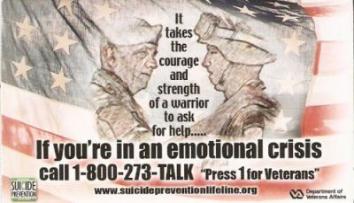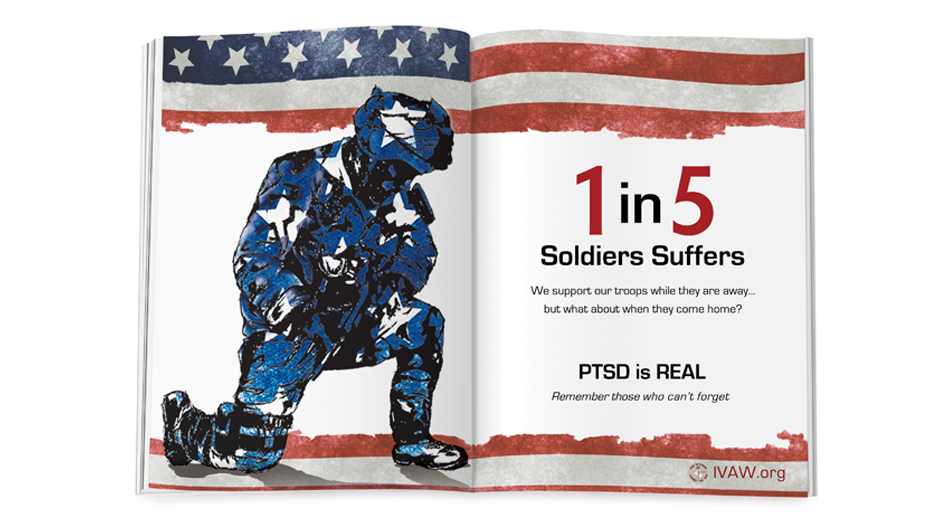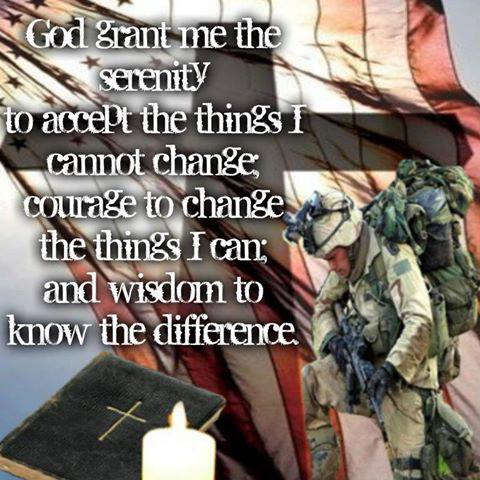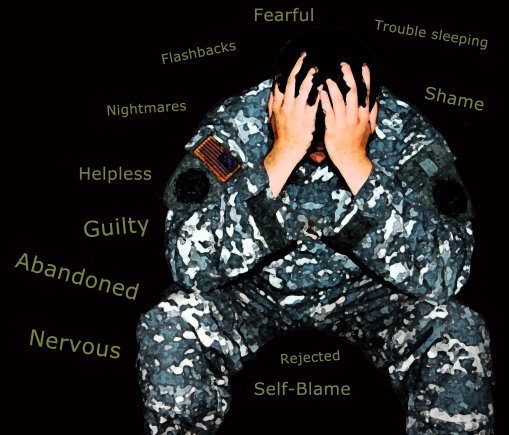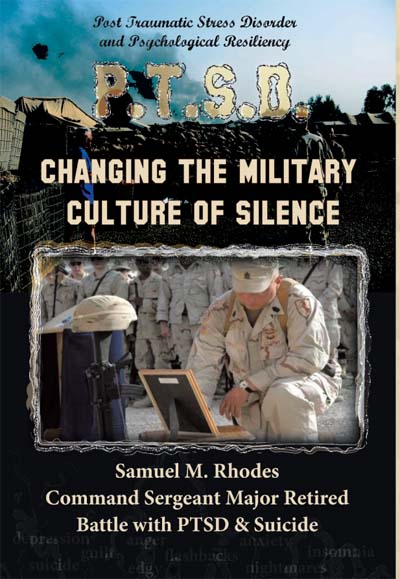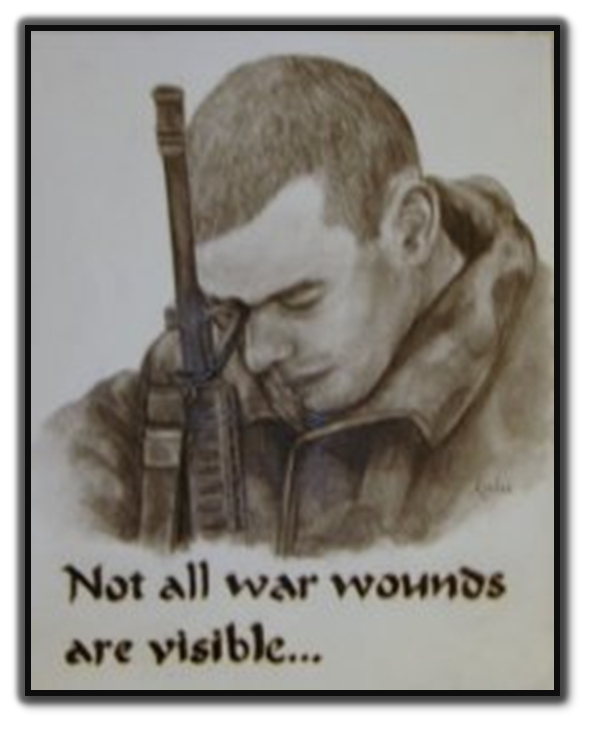Sgt. Eric Layne's death was not pretty.
A few months after starting a drug regimen combining the antidepressant Paxil, the mood stabilizer Klonopin and a controversial anti-psychotic drug manufactured by pharmaceutical giant AstraZeneca, Seroquel, the Iraq war veteran was "suffering from incontinence, severe depression [and] continuous headaches," according to his widow, Janette Layne.
Soon he had tremors. " … [H]is breathing was labored [and] he had developed sleep apnea," Layne said.
Janette Layne, who served in the National Guard during Operation Iraqi Freedom along with her husband, told the story of his decline last year, at official FDA hearings on new approvals for Seroquel. On the last day of his life, she testified, Eric stayed in the bathroom nearly all night battling acute urinary retention (an inability to urinate). He died while his family slept.
Sgt. Layne had just returned from a seven-week inpatient program at the VA Medical Center in Cincinnati where he was being treated for post-traumatic stress disorder (PTSD). A video shot during that time, played by his wife at the FDA hearings, shows a dangerously sedated figure barely able to talk.
Sgt. Layne was not the first veteran to die after being prescribed medical cocktails including Seroquel for PTSD.
In the last two years, Pfc. Derek Johnson, 22, of Hurricane, West Virginia; Cpl. Andrew White, 23, of Cross Lanes, West Virginia; Cpl. Chad Oligschlaeger, 21, of Roundrock, Texas; Cpl. Nicholas Endicott, 24, of Pecks Mill, West Virginia; and Spc. Ken Jacobs, 21, of Walworth, New York have all died suddenly while taking Seroquel cocktails.
Death certificates and other records collected by veteran family members show that more than 100 similar deaths have occurred among Iraq and Afghanistan combat vets and other military personnel, many of whom took PTSD cocktails that included Seroquel and other antipsychotics, antidepressants, mood stabilizers, sleep inducers and pain and seizure medications.
Since the 2008 publication of "The Battle Within," the Denver Post's expose of a "pharmaco-battlefield" in Iraq, in which troops were found to be routinely propped up on antidepressants, the Department of Defense has sought to curb the deployment of troops with mental health problems to combat zones. The DOD has also stepped up monitoring of soldiers who have been medicated, according to the Hartford Courant, and with good reason: 34 percent of the 935 active-duty soldiers who made suicide attempts in 2007 were on psychoactive drugs.
But the U.S. Army's Warrior Care and Transition Office reports that soldiers are dying after coming home, many in Warrior Transition Units that were established in 2007 to prepare wounded soldiers for a return to duty or civilian life. According to the Army Times, between June 2007 and October 2008, 68 such veteran deaths were recorded -- nine were ruled suicides, six are pending investigation and six were from "combined lethal drug toxicity." Thirty-five were termed "natural causes."
The mysterious deaths -- and an alarming track record -- have cast renewed scrutiny on Seroquel. Although it has not been approved for treatment of PTSD, Pentagon purchases of Seroquel nearly doubled between 2003 and 2007. Elspeth Ritchie, medical director of the Army's Strategic Communications Office told the Denver Post the drug is "increasingly utilized as an adjunct for PTSD."
The Seroquel Scandals
It would be hard to find a drug with a wider fraud footprint than Seroquel -- at least one that's still on the market.
One of its first backers, Richard Borison, former chief of psychiatry at the Charlie Norwood VA Medical Center, lost his medical license, was fined $4.26 million and went to prison for a swindle involving Seroquel's original clinical studies.
AstraZeneca's U.S medical director for Seroquel, Dr. Wayne MacFadden, had sexual affairs with two different women doing research on Seroquel, a study investigator at London's Institute of Psychiatry and a Seroquel ghostwriter at the marketing firm, Parexel. According to court documents, MacFadden even joked about the conflicts of interest with one paramour.
Last year, the Chicago Tribune and ProPublica reported that Chicago psychiatrist Michael Reinstein, who wrote 41,000 prescriptions for Seroquel, received $500,000 from AstraZenenca. Meanwhile, a report in the Minneapolis Star Tribune discredited influential studies by AstraZeneca-funded Charles Schulz, MD, chief of psychiatry at the University of Minnesota.
Seroquel was even promoted by the disgraced former chief of psychiatry at Emory University School of Medicine, Charles Nemeroff, who was accused by congressional investigators of failing to report $1 million in pharmacological income -- in AstraZeneca-funded continuing medical education courses.
And until a Philadelphia Inquirer expose last year, Florida child psychiatrist Jorge Armenteros, a paid AstraZeneca speaker, was chairman of the FDA Psychopharmacologic Drugs Advisory Committee responsible for recommending Seroquel approvals.
In a trial that began in New Jersey last month, AstraZeneca is defending itself in one of 26,000 lawsuits, denying that Seroquel caused diabetes in Vietnam veteran Ted Baker, who was prescribed Seroquel for PTSD. Last year, London-based AstraZeneca agreed to pay $520 million last year to settle suits pertaining to clinical trials and illegal Seroquel marketing.
Yet, instead of reconsidering a drug linked to an alarming number of deaths and marred by at least eight corruption scandals in 13 years -- Seroquel was even prescribed to a 4-year-old Massachusetts girl, Rebecca Riley, before her death -- the FDA continues to issue approvals for new uses for Seroquel.
Seroquel was first approved to treat schizophrenia in 1997. The FDA subsequently expanded its use, approving it for "acute manic episodes associated with Bipolar I Disorder" in 2004, "major depressive episodes associated with Bipolar Disorder" in 2006 and "maintenance treatment for Bipolar I Disorder" in 2009.
Last April, the FDA opened the door to prescribing Seroquel to people who have not even been diagnosed with schizophrenia or bipolar disorder, approving Seroquel as "an additional therapy in patients suffering from depression who do not respond adequately to their current medications."
Not that Seroquel needed a boost; its $4.9 billion in sales in 2009 signals usage far beyond the 1 percent of the population with schizophrenia and the 2.5 percent with bipolar disorder. North Carolina's Medicaid spends $29.4 million per year on Seroquel -- more than any other drug, according to the Charlotte News and Observer.
Most recently, in December, Seroquel was quietly approved for children between the ages of 10 and 17 who are diagnosed with bipolar mania and children between 13 and 17 with schizophrenia. It was a stealth end-of-the-year decision, announced not by the FDA itself but by AstraZeneca. (The change was reflected in an entry on Seroquel's FDA approval page that notes "Patient Population Altered.")
'When six people die from peanut butter we shut the factories down'
With veteran deaths in the news, family members hope the unsolved mysteries surrounding Seroquel-linked deaths of soldiers could finally force AstraZeneca to take responsibility for its product.
Stan and Shirley White lost two sons to war. Robert White, a staff sergeant, was killed in Afghanistan in 2005, when his Humvee was hit by a rocket-propelled grenade. But the death of Robert's younger brother Andrew, who survived Iraq only to succumb to a different battle, is in some ways "harder to accept" says his father.
Like Eric Layne, Andrew was taking Seroquel, Klonopin, Paxil and prescription painkillers for PTSD after returning home from his Iraq tour. Like Layne, he deteriorated physically and mentally on the prescribed cocktail until experiencing a sudden, inexplicable death.
"When six people die from peanut butter we shut the factories down, but at least 87 military men have died in the past six years on Seroquel and similar drugs and no alarm sounds," Stan White told AlterNet.
When White informed his representatives, Sen. Jay Rockefeller and Rep. Shelley Moore Capito of West Virginia, of Andrew's unexplained death, they were helpful, as was Tammy Duckworth, the VA's Assistant Secretary of Public and Intergovernmental Affairs. But packets White distributed to news organizations, Congress and the White House were acknowledged only by First Lady Michelle Obama, who forwarded hers to the VA, and Sen. Daniel Akaka of Hawaii, who chairs the Senate Committee on Veterans Affairs. In letters to White, both remarked that therapy, not just drugs, should be part of PSTD treatment.
A 2008 investigation by the VA's Office of Inspector General into the deaths of Andrew White and Eric Layne was inconclusive, finding "no apparent signal to indicate increased mortality for patients taking the combination of Quetiapine, Paroxetine, and Clonazepam when compared with patients taking other similar combinations of psychotropic medications."
"The direct impact of non-prescribed medications in these patient deaths cannot be determined," investigators concluded.
SSGT (Ret) Tom Vande Burgt's Army National Guard company was stationed outside Baghdad at the same time that Eric and Janette Layne were serving, in 2004 and 2005, but his story has a happier ending.
Like White and Layne, he was prescribed a PTSD cocktail that included Seroquel, along with Klonopin and the antidepressant Celexa, but as tremors, sleep apnea and enuresis (bedwetting) developed, his wife, Diane, questioned the high dosage, off-label use of a bipolar drug like Seroquel. After her husband was taken off his meds abruptly and it was discovered there were no records of the drugs being sent to him (or the doses) by a VA primary care doctor -- mistakes that "could have cost him his life," according to Diane -- the Vande Burgts filed a complaint with the VA Office of the Inspector General. It, however, found no wrongdoing, concluding the treatment was within the VA's "standard of care."
Under the care of a private psychiatrist, Vande Burgt's cocktail only grew, but eventually he went off the drugs with the help of his doctor, and his sleep apnea, urinary problems, tremors, weight gain, depression, mood swings, lethargy and paranoia subsided.
The way Vande Burgt describes it, Seroquel "drugs vets up" to such a degree that they "don't dream at all."
"It wipes out the hypervigilance factor," he told AlterNet via e-mail. "But as soon as the meds are decreased, the hypervigilance and anger and trust issues come raging back, worse than before."
Now the Vande Burgts, who live in Charleston, West Virginia, coordinate a PTSD support group and a Web site that emphasize nondrug solutions and the need for soldiers and veterans to have an advocate present during care for PTSD and traumatic brain injury to ensure clear communication between doctors and patient. Tom also uses the services of Give an Hour, a program in which local therapists donate one hour of therapy a week to veterans, soldiers and families dealing with PTSD.
"There is no cure for PTSD, especially in a magic pill," the Vande Burgts told AlterNet. "Good old-fashioned talk therapy and support groups are tried and true … all the others are just quick fixes that add to the problem, not addressing the root of the problem."
AstraZeneca: Too Big to Regulate?
Seroquel's ability to cause cardiac arrest and sudden death is well-known.
A search of the U.S. National Library of Medicine database yields 20 articles linking "Seroquel" and "sudden death," 24 linking "Seroquel" and "QT prolongation" (a heart disturbance that can led to death), 55 linking "Seroquel" and "toxicity," as well as such terms as "cardiac arrest" and "death."
A 2005 article in the Journal of Forensic Sciences says Seroquel was detected in 13 postmortem cases and the cause of death in three, observing that "little information exists regarding therapeutic, toxic, and lethal concentrations."
A 2003 article in CNS Drugs reports, "some patients have died while taking therapeutic doses," of atypical antipsychotics like Seroquel and that "toxicity may be increased by coingestion of other agents."
"The second-generation antipsychotics were termed 'atypical' based on misconceptions of enhanced safety and efficacy," Dr. Grace Jackson, a former Navy and Veterans Administration psychiatrist and author of Drug-Induced Dementia and Rethinking Psychiatric Drugs, told AlterNet in an interview. ("Atypical" antipsychotics supposedly function differently from "typical" antipsychotics and are thought to cause fewer side effects.)
"In 2002 and 2003, according to a VA study published in 2007, 20 to 30 percent of demented veterans [veterans with brain conditions including organic and psychiatric psychosis] died within the first 12 months of beginning treatment with an antipsychotic," said Jackson. "When you combine antipsychotics with antidepressants, benzodiazepines and antiepileptics -- especially in Iraq/Afghanistan veterans who have likely sustained traumatic brain injuries -- you have potential lethality from sleep apnea, endocrine anomalies and opioid intoxication."
Seroquel's record of causing sudden cardiac death was on the docket at last year's FDA hearings, which Stan and Shirley White and Janette Layne attended.
According to Dr. Wayne Ray, who testified before the FDA's Psychopharmacologic Drugs Advisory Committee, one study involving 93,300 users of antipsychotic drugs -- half of whom were on atypical antipsychotics -- showed that such users were at no less than double the risk of a "sudden, fatal, pulseless condition, or collapse … consistent with a ventricular tachyarrhythmia occurring in the absence of a known, non-cardiac cause."
Ray, professor of preventive medicine at Vanderbilt University School of Medicine, published the findings in an article titled "Atypical antipsychotic drugs and the risk of sudden cardiac death," in the New England Journal of Medicine last year.
Unwilling to let Seroquel's approval prospects sink just because it's dangerous, the FDA's Marc Stone, a medical reviewer, donned his AstraZeneca hat at the hearing. In a presentation rebutting Ray's testimony, he asked how the death certificates in these cases were accurate when "paramedics are more likely to identify some deaths as sudden cardiac deaths?"
"Smoking as an important risk factor for sudden cardiac death is unlikely to appear in the Medicaid claims data used in this study," Stone continued, and, "How do we know smoking wasn't a factor in the deaths -- or that antipsychotic users aren't less likely to 'communicate symptoms of cardiac disease to medical personnel?'" He also pointed out that "Mental illness severe enough to require antipsychotic drugs … may also increase the chances of someone being homeless or living alone with little social contact," apparently forgetting that the purpose of the FDA hearings was to approve Seroquel for non-mentally ill people with anxiety and depression.
Elsewhere, Seroquel for PTSD gets good reviews.
"These data are encouraging for adjunctive treatment with a second-generation [atypical] antipsychotic in patients who have partially responded to an SSRI or an SNRI [antidepressants]," says the American Psychiatric Association's March 2009 Practice Guideline for the Treatment of Patients with Acute Stress Disorder and Posttraumatic Stress Disorder. Matthew J. Friedman, one of its four authors, is executive director of the U.S. Department of Veterans Affairs National Center for PTSD -- and an AstraZeneca consultant.
"Quetiapine improves sleep disturbances in combat veterans with PTSD," wrote Mark Hamner in a 2005 Journal of Clinical Psychopharmacology article. Hamner is medical director of the PTSD clinical team at the Ralph H. Johnson Department of Veterans Affairs Medical Center in Charleston, SC -- and an AstraZeneca consultant.
"Atypical antipsychotics also have an emerging place in PTSD pharmacology, particularly for symptoms of paranoia, intense hypervigilance, arousal, extreme agitation, dissociation, psychotic-type flashbacks, and brief psychotic reactions," writes Cynthia M. A. Geppert in a 2009 Psychiatric Times article. She is chief of consultation psychiatry and ethics at the New Mexico Veterans Affairs Health Care System -- and recipient of three AstraZeneca grants.
Meanwhile, critics and activists ask: What protections are afforded to veterans enrolled in Seroquel studies -- some combining Seroquel with other drugs -- that AstraZeneca-funded doctors conduct at VA medical centers?
Many say that Big Pharma, embedded in academic institutions, medical schools, military medicine, government entitlement programs and the FDA itself is too big to regulate, like Wall Street firms. But others say the incarceration of VA Chief of Psychiatry Richard Borison in 1998 is proof the system works. (Of course, he will be out soon.)
As veterans continue to come home from Iraq, even as more are deployed to Afghanistan, PTSD will continue to threaten their mental health. The untold number who will have survived the wars only to die at the hands of deadly pharmaceutical cocktails is a scandal the FDA -- and the Pentagon -- cannot afford to ignore.
"Treating PTSD does not have to be drugging up our soldiers and Marines in order to keep boots on the ground," says Diane Vande Burgt. "Our soldiers and Marines are not dispensable to save a dollar."
Martha Rosenberg frequently writes about the impact of the pharmaceutical, food and gun industries on public health. Her work has appeared in the Boston Globe, San Francisco Chronicle, Chicago Tribune and other outlets.
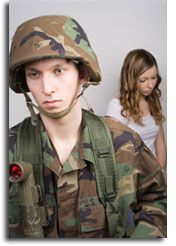 If you're a returning combat veteran having some difficulty readjusting to civilian life, you may be wondering what's going on. Why am I angry all the time? Why am I feeling detached?
If you're a returning combat veteran having some difficulty readjusting to civilian life, you may be wondering what's going on. Why am I angry all the time? Why am I feeling detached? 